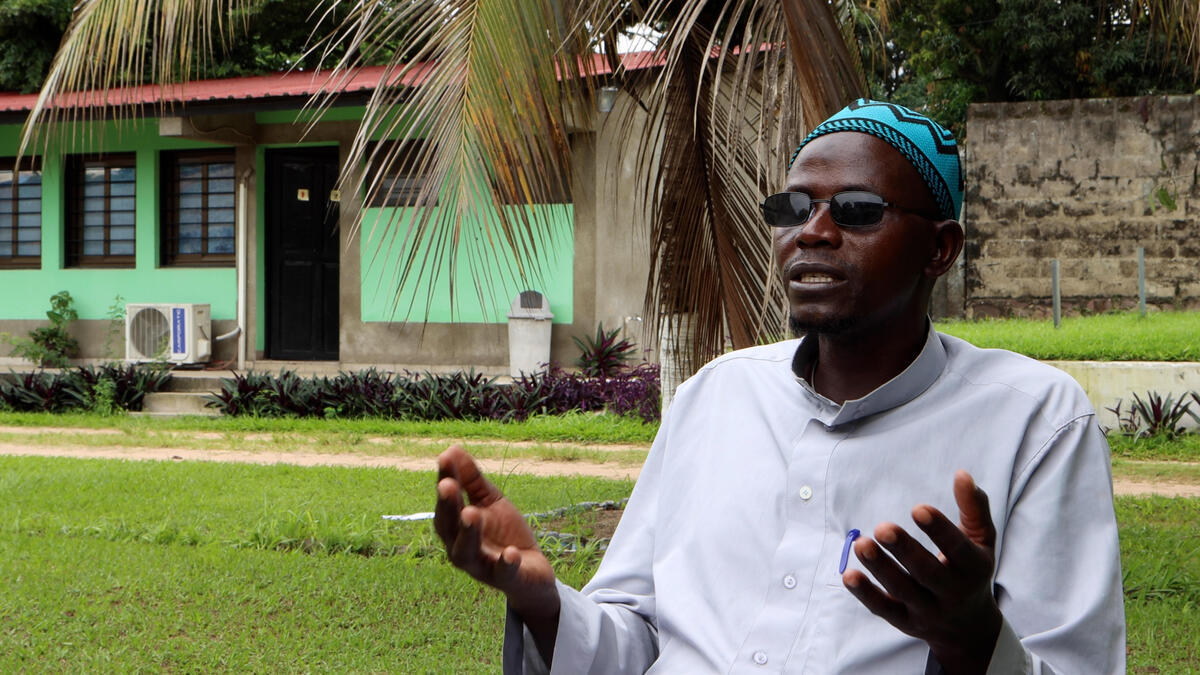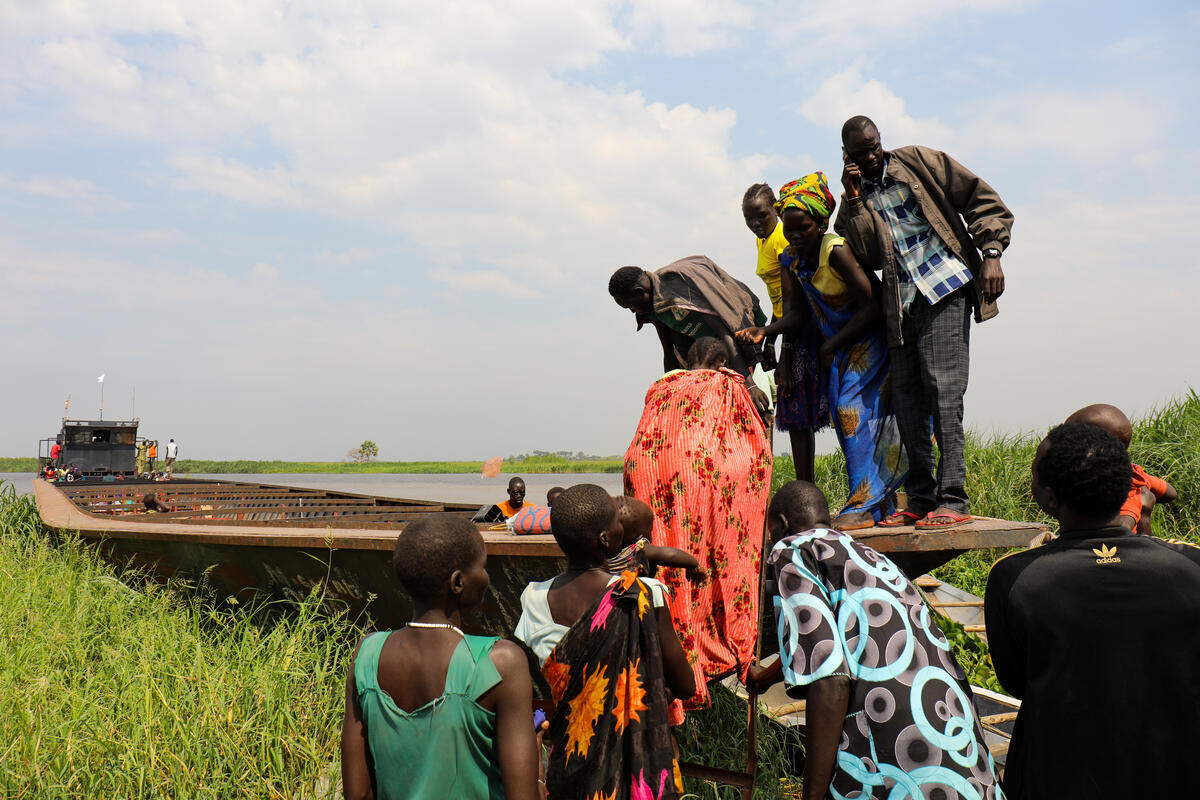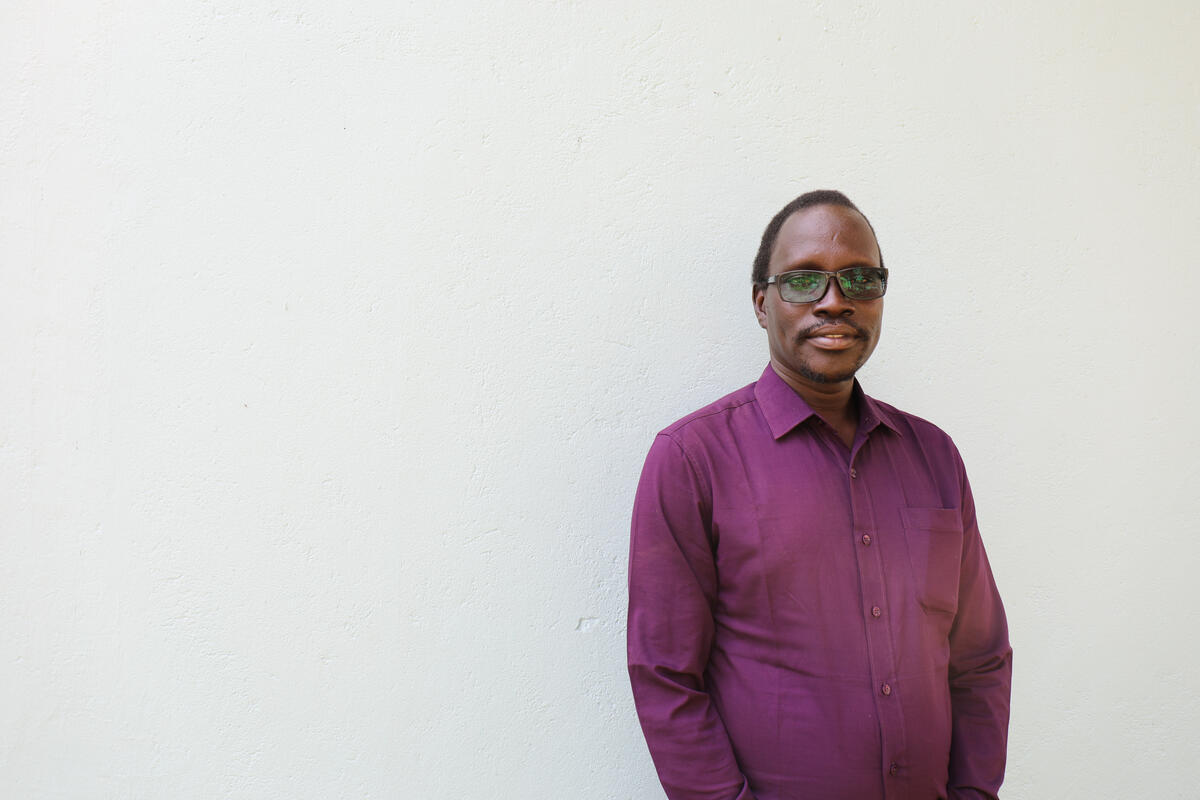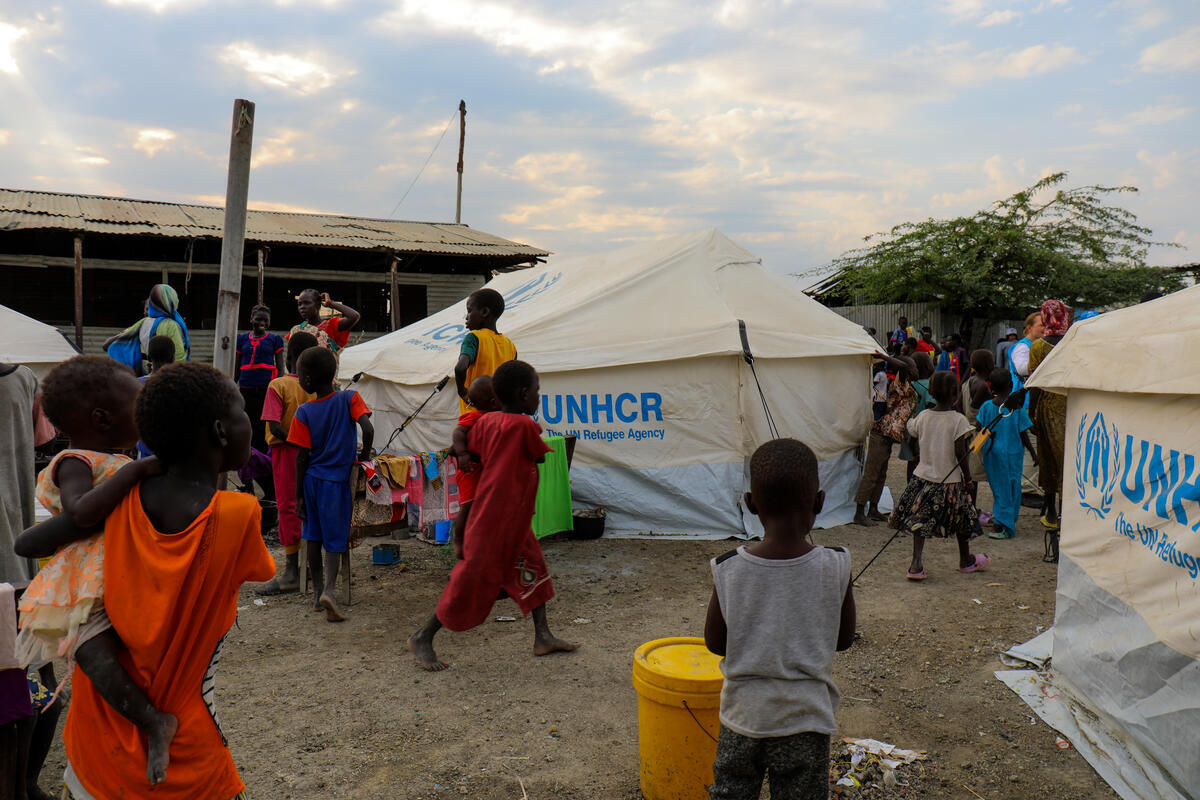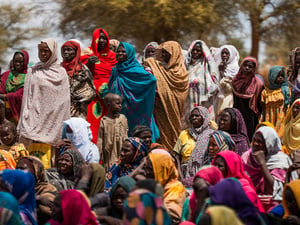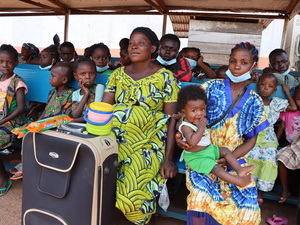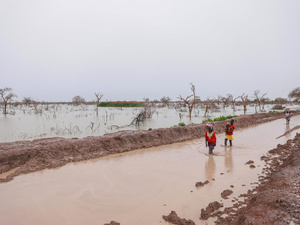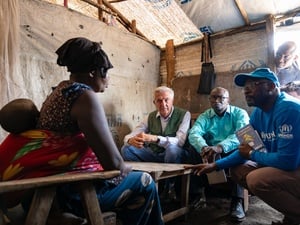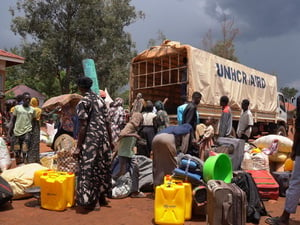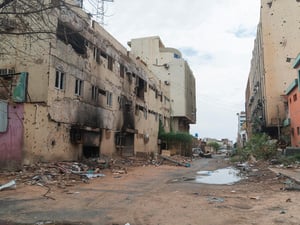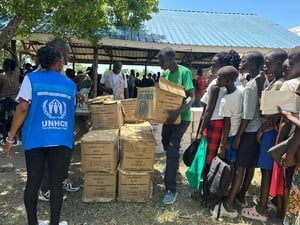Across borders, South Sudan's displaced call for peace
Across borders, South Sudan's displaced call for peace

Family shelters at the Malakal Protection of Civilians site where Jokino Othong Odok has lived, just a few kilometres from his former house, since 2013.
Sawibu Rashidi and Jokino Othong Odok both fled their homes in South Sudan in search of safety. But a decade since the conflict in their home country started, a return to security remains elusive, both for Sawibu, who fled to neighbouring Democratic Republic of the Congo (DRC), and for Jokino who sought refuge in a UN displacement site inside South Sudan.
They are not alone. South Sudan’s refugee crisis remains the largest in Africa, with 2.3 million people living as refugees in neighbouring countries and an additional 2.2 million people internally displaced. The country continues to suffer the legacy of civil war, persistent ethnic conflict, and, more recently, the devastating impacts of climate change, leaving millions in need of assistance and making the sustainable return of refugees elusive.
In the turmoil of flight in 2016, Sawibu was separated from members of his family when he fled to the DRC, some of whom found safety in Uganda, others in the DRC. He now lives in Biringi site, in the DRC’s Ituri Province, with a wife and five of his children.
There, he serves as a local Imam and leader in the refugee community. He observes that in the South Sudanese community in Biringi there is good integration of people from different backgrounds and faiths – something that he hopes to eventually see in his native South Sudan.
“I am a leader of a Muslim community from South Sudan, but here in DRC we pray together in the same space as Congolese Muslims. Similarly, Christians from my community pray with the local Christians and we all share one market,” says Sawibu.
"First of all, people need peace."
Despite the strong Congolese tradition of opening doors to those forced to flee, the country continues to see high levels of insecurity and large-scale violence impacting civilians, leaving many facing severe risks. While hosting South Sudanese refugees, the country is grappling with the largest internal displacement situation on the African continent, with 5.8 million people internally displaced.
Many South Sudanese refugees in the DRC live in Ituri Province, a region of the country that has itself seen a significant escalation of violence in recent months. Across the province, waves of cyclical violence are forcing families to be displaced not once, but twice, three, or four times and continuing violence in the border regions has seen refugees repeatedly displaced in search of safety. Meanwhile, resources are stretched in host communities which themselves are straining under the pressures of sustained conflict.
“First of all, people need peace.. We have all fled fighting in South Sudan, but now the fighting in Ituri is getting closer to us,” says Sawibu. “We hear of killings and attacks. Given our backgrounds, it gives us a lot of fear.”
Meanwhile, across the border in South Sudan, ethnic tensions are on the rise again, with new internal displacements happening in eight out of 10 states in the country, spurred on by severe flooding and competition for resources.
Before the start of what he refers to as the “crisis” in 2013, Jokino worked for the Catholic Dioceses of Malakal, serving his community as part of a church-based organization. He now lives just a few kilometres from his former house, sharing a small room with eight family members in the Malakal Protection of Civilians (POC) site in South Sudan’s Upper Nile State, a UN displacement site protected by UN peacekeepers. Despite its proximity to his house, he still can't go home due to persistent ethnic tensions.
"We are fed up with living in the POC,” says Jokino. “We have our houses in Malakal town, which we cannot occupy now because other people are occupying them. And because there is no protection for us there,” he says. “We want to live freely like any ordinary citizen of the world.”
In Upper Nile State, conflict has broken out again, meaning that more people have continued to arrive at the POC, which is already severely overcrowded. Due to space constraints, the new arrivals are forced to settle in the camp’s schools, pausing education for children in the site, one of many issues facing residents.
“Why are our children different?” asks Jokino. “My hope is that there is peace, there is security, so that we can live freely, our children can access education, [and] live like any other children in the world.”
"We really want to love this country."
Across borders, Jokino and Sawibu voice similar hopes for the future. They talk about education and livelihoods and their desire to apply the skills they have to support their communities and build their country. Sawibu explains that even “members of our community who have education struggle to find work”, painting a picture of an entire generation's future stunted by conflict. “If there was peace not war, we could go back [home] and use their skills to develop our country.”
Jokino feels similarly: “We live on things which are handed out, the goodwill of others … but a human being with ambition to live a better life doesn’t want to live like this.”
On 21 February, UNHCR together with 108 partners, including humanitarian, development and civil society actors, launched the 2023 Regional Refugee Response Plan, appealing for US$1.3 billion to provide life-saving assistance and protection to over 2.2 million South Sudanese refugees and asylum-seekers living in the DRC, Ethiopia, Kenya, Uganda and Sudan. This appeal is to support neighbouring countries hosting South Sudanese refugees and complements the 2023 Humanitarian Response Plan which aims to address humanitarian needs inside South Sudan.
Above all, both men hold out hope for peace to return to their country. “I need a peaceful South Sudan, where every South Sudanese can enjoy life, so that we don’t have to hate our country,” said Sawibu. “We really want to love this country.”

